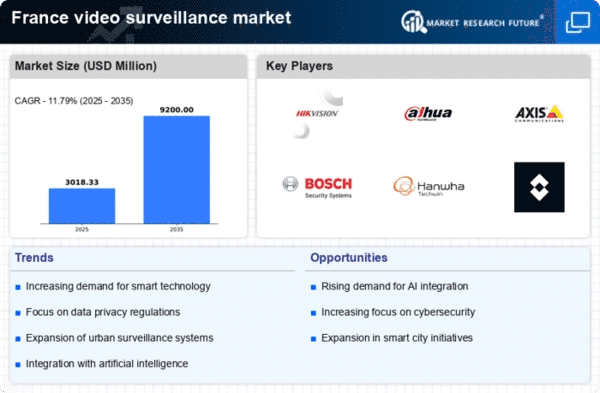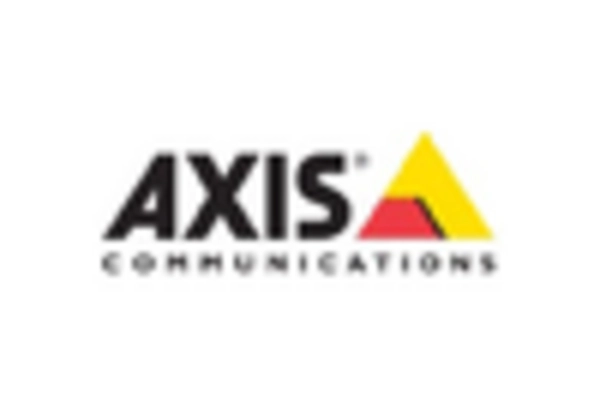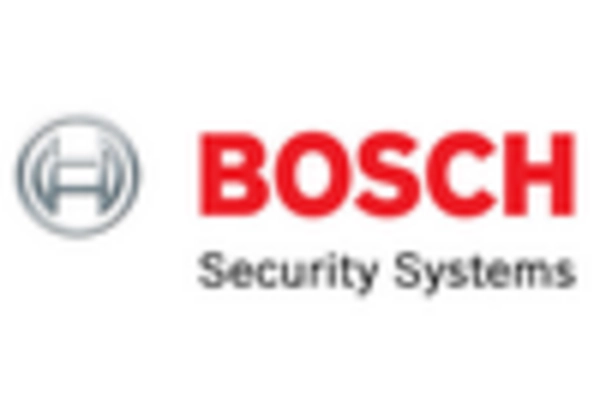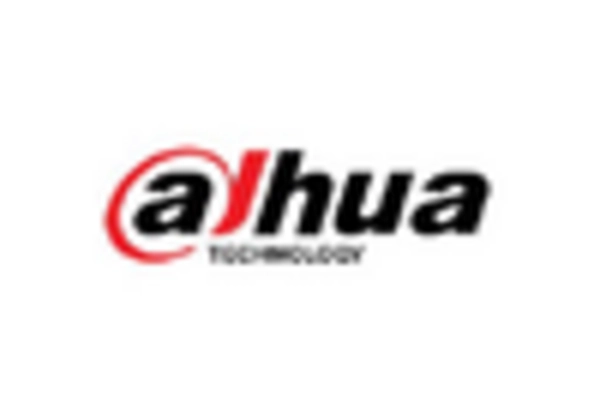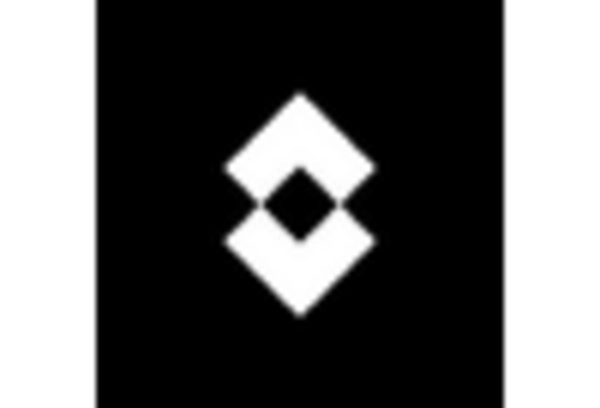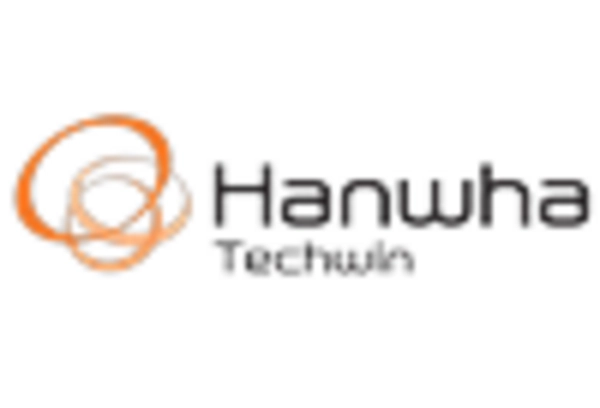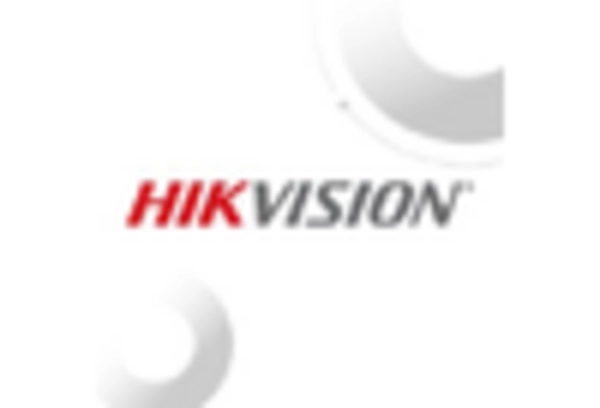Increasing Security Concerns
The video surveillance market in France is experiencing growth driven by escalating security concerns among businesses and public institutions. With rising incidents of crime and terrorism, organizations are investing heavily in surveillance systems to enhance safety. According to recent data, the market is projected to grow at a CAGR of 8.5% from 2025 to 2030. This trend indicates a robust demand for advanced surveillance technologies, as entities seek to protect assets and ensure the safety of personnel. The video surveillance market is thus witnessing a shift towards more sophisticated solutions, including high-definition cameras and integrated monitoring systems, which are essential for effective security management.
Rising Demand from Retail Sector
The retail sector in France is a significant driver of the video surveillance market, as businesses increasingly recognize the importance of security in protecting assets and ensuring customer safety. With theft and fraud posing substantial risks, retailers are investing in comprehensive surveillance systems to deter criminal activities. Recent studies indicate that the retail segment accounts for approximately 30% of the total market share in France. This trend suggests that the video surveillance market will continue to thrive as retailers adopt advanced technologies to enhance security measures and improve operational efficiency.
Government Initiatives and Regulations
Government initiatives in France are significantly influencing the video surveillance market. The implementation of stricter regulations regarding public safety and crime prevention has led to increased investments in surveillance technologies. For instance, the French government has allocated approximately €200 million for enhancing urban security through advanced surveillance systems. This funding is aimed at improving public safety in urban areas, thereby driving demand for video surveillance solutions. The video surveillance market is likely to benefit from these initiatives, as local authorities and businesses align their security strategies with government mandates, fostering a conducive environment for market growth.
Growing Awareness of Surveillance Benefits
There is a growing awareness among businesses and consumers in France regarding the benefits of video surveillance systems. Organizations are beginning to understand that effective surveillance not only deters crime but also aids in operational efficiency and customer satisfaction. This awareness is driving demand for video surveillance solutions across various sectors, including hospitality, healthcare, and transportation. The video surveillance market is likely to see an increase in adoption rates as stakeholders recognize the multifaceted advantages of surveillance systems, leading to a more secure and efficient environment.
Technological Advancements in Surveillance
Technological advancements are reshaping the video surveillance market in France, with innovations such as cloud storage, AI analytics, and IoT integration becoming increasingly prevalent. These technologies enhance the functionality and efficiency of surveillance systems, allowing for real-time monitoring and data analysis. The market is expected to reach a valuation of €1.5 billion by 2026, reflecting the growing adoption of these advanced solutions. As organizations seek to leverage technology for improved security, the video surveillance market is likely to see a surge in demand for smart cameras and integrated systems that offer enhanced capabilities and user-friendly interfaces.

